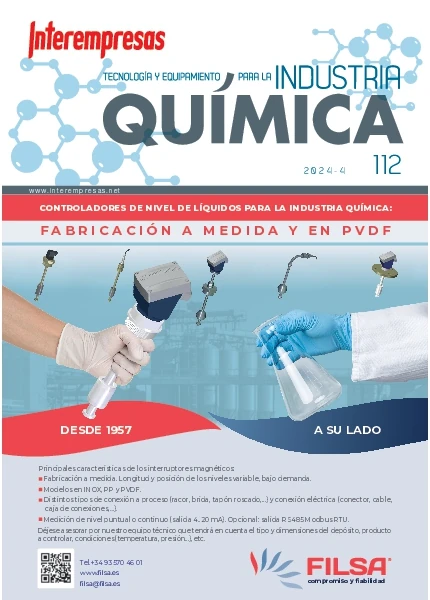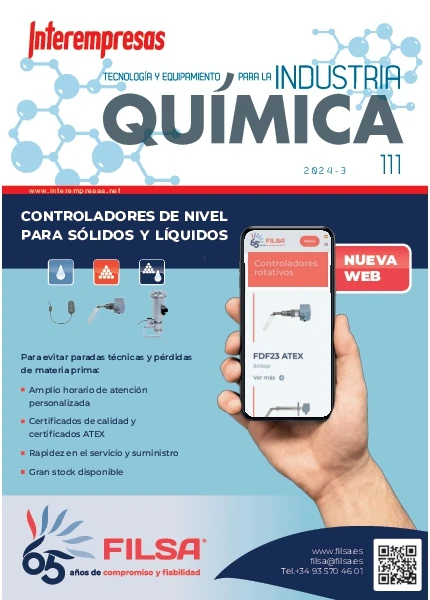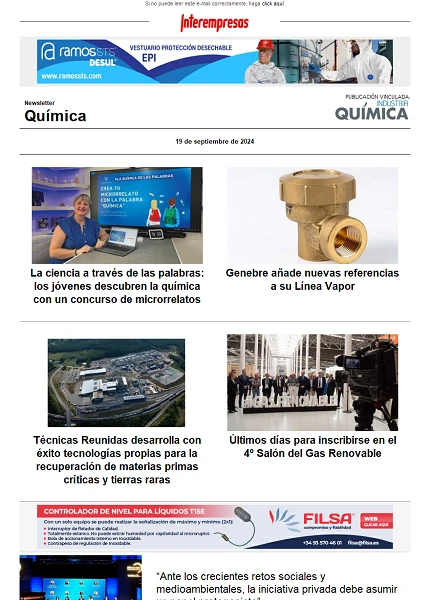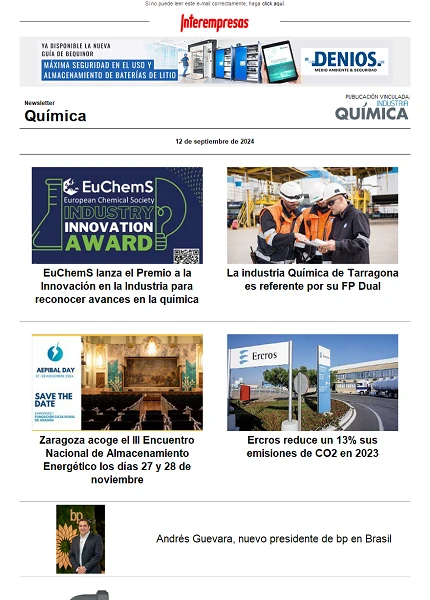La normativa Reach, clave en el futuro de la química transformadora
Esta nueva normativa, que afectará a la industria química europea en general, tendrá también consecuencias importantes en el subsector de la química transformadora, que engloba productos como las pinturas, barnices, adhesivos, tintes de imprenta, productos para la limpieza, perfumes y cosméticos, y aceites esenciales, entre otros.
Consciente de su importancia, la Fundación Observatorio de Prospectiva Tecnológica Industrial (OPTI), a través del Instituto Químico de Sarriá (IQS), ha realizado un estudio de prospectiva tecnológica de la química transformadora, en el que cerca de 200 expertos españoles han expuesto su opinión sobre el futuro de cada una de las actividades de este subsector respecto de otros países europeos.
El estudio se enmarca dentro de los trabajos que la Fundación OPTI lleva a cabo desde 1998 y en los que el IQS es el responsable de dirigir y realizar los estudios del sector químico.

El coste inherente al progreso
La química transformadora deberá hacer un gran esfuerzo para poder competir con el resto de países europeos

En términos económicos, los expertos señalan un aumento de los costes de desarrollo que forzará a las empresas a una reducción de sus catálogos de productos a productos clave o prioritarios, y la desaparición o absorción de muchas empresas, sobre todo pequeñas y medianas, al no poder hacer frente a los costes de comprobación que la nueva normativa impone.
En esta misma línea, los expertos vaticinan un estancamiento de la industria química europea por pérdida de competitividad frente a Estados Unidos y Japón, desviándose la producción hacia países emergentes menos exigentes (Asia, América Latina).
Al fabricar productos de la vida diaria (pinturas, barnices, perfumes...), se exigirá a la química transformadora que la inocuidad de sus productos sea probada y que éstos sean más ecológicos y verdes. Ello conllevará la sustitución de los productos derivados del petróleo por los de origen natural y al empleo de la bioquímica y biotecnología en el desarrollo de nuevos productos.
En consecuencia, aparecerán nuevas gamas de materias primas y productos acabados, posiblemente más caros, pero acordes con las exigencias del consumidor, que estará bien informado sobre los productos que utiliza.
En este mismo sentido, las empresas del sector de la química transformadora invertirán más en I+D+i. Asimismo, los expertos prevén la creación de laboratorios de ensayo acreditados y el desarrollo de nuevas tecnologías para cumplir las exigencias del reglamento Reach y la realización de los productos fabricados en instalaciones altamente automatizadas, responsabilizándose también a las empresas de todo lo relacionado con el producto y su utilización (por ejemplo, envases, residuos).
Un subsector en auge
En cuanto a ocupación, un 18,1 por ciento del empleo (45.431 puestos de trabajo) generado por la industria química durante el 2001 corresponde al subsector de la química transformadora, porcentaje que sólo fue superado por el subsector de los transformados de plástico y caucho (42 por ciento).









































